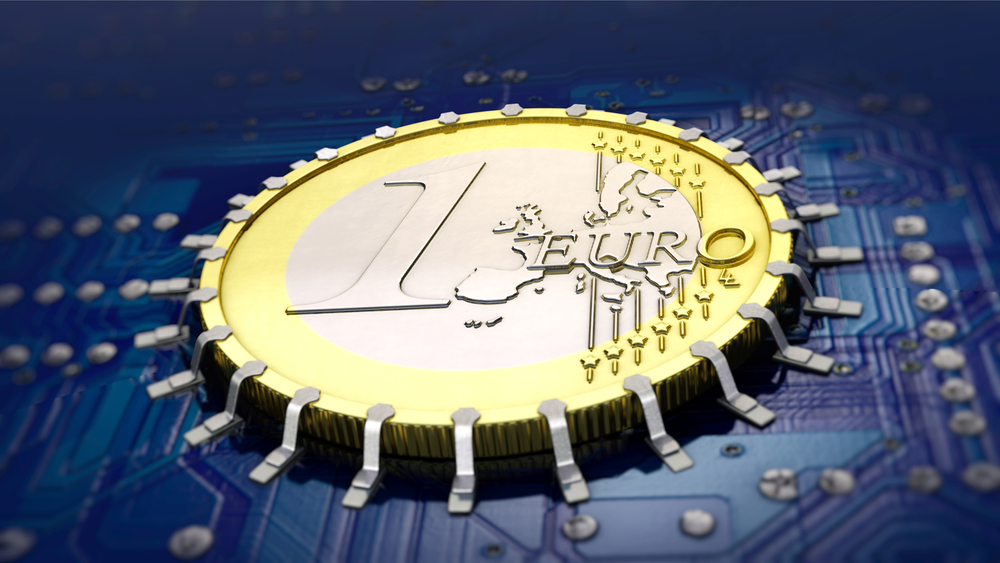Does the thought of AI taking over the world keep you up at night? Well, listen to this: there could be a digital euro (“e-euro”) in all Eurozone countries within the next five years.
The European Commission (EC) recently wrote a proposal to pitch this pioneering invention: a digital euro that can be used in any Eurozone country, stored in a normal bank account which you don’t receive interest from.
READ MORE | ABN AMRO now gives you a very sad 1.25% on your savings; here are 5 options that make you more money
This would include some of the most popular Dutch banks, ING and ABN AMRO. You would also be able to pay using an e-wallet, and potentially without an internet connection.
Why bother?
What is the point exactly? The European Commission says its primary goal is allowing folks to travel anywhere they want in the Eurozone without having to muck around with cash.
Retailers would be forced — “obliged”, as NU.nl puts it — to comply with this new digital currency. However, they are also allowed to tack on a small fee, which reportedly won’t cost more than fees from payment methods that we’re already familiar with.
"In the #Netherlands people are quite happy to see the E-Euro coming".
Is this how far Dutch people are already shaped into their technocratic control beliefs or does it show how far these politcians are removed from reality? Dutch people were never asked anything #Lagarde https://t.co/j6mDdPFacW— Sietskema (@Sietskema) March 19, 2023
Those tiny boutiques and corner shop retailers that refuse to use the e-euro are permitted to stick to cash only though. The others will just have to keep up with the changing times. 🤷♀️
Will it add fuel to the shopping addiction fire?
There’s also talk of the e-euro being manifested in the form of an app, but for now, it looks like e-wallets are the European Commission’s best bet.
Have you, like the rest of us, got a deplorable online shopping habit? Well, the digital euro could enable that even more, since you would be able to pay on webshops the way you would with a Tikkie, for instance.
You could also pay with e-euros when offline, buying groceries at the counter, for example. That way if your mobile data stops working, or there’s a “cyber attack”, you won’t be left hanging.
Borderline Orwellian
The European Commission’s proposal isn’t being greeted with a whole lot of enthusiasm. Not everyone is keen, considering their concerns over breaches of privacy.
Plenty of people are scared of the surveillance the European Commission would have over their digital wallets. Many are asking, could they get totalitarian on our asses?
Yesterday, the European Commission studied the implementation of the digital euro.
One more step towards the end of individual freedoms.
The abolition of cash can only lead to totalitarian social credit!
Let's resist! https://t.co/395nvVaCND— Mathis Mateo, MD ✝️☦️☯️☀️🌟🌙🕉🌹💎🚀👽 (@mateo_tao) June 29, 2023
Some say it’s only a matter of time before they start restricting how much alcohol, cigarettes, or unhealthy food we’re allowed to buy with the e-euro. O…kay. Brussels assures us they have no interest in doing that.
Another obstacle is the fact that some of the most common payment methods, including Visa, Mastercard, or Apple Pay, aren’t European-owned.
READ MORE | Transaction declined: why don’t my bank cards work in the Netherlands?
Several “experts” are complaining that the e-euro is not as anonymous as paying in cash. Whether or not these “experts” are actually drug dealers is open to speculation. 🤔
The Netherlands forgot cash existed
The good news is, this digital coin wouldn’t be introduced until 2028, because it would take at least five years to set up, meaning we have time to mentally prepare.
Also, retailers would still be obligated to accept cash from people, according to the European Commission.
Paying cash in the Netherlands currently feels near-impossible, with the abundance of self-scanners and scant ATMs.
Not only that, but European policymakers want to make it possible to withdraw cash from random stores when you haven’t even purchased anything there. Imagine asking that of the already reluctant Dutch customer service industry. 😬
Would this e-euro be a welcomed improvement or just another opportunity for robots’ world domination? Let us know in the comments!


